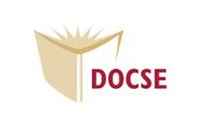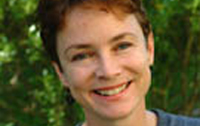Mark Sussman is a theatre artist and scholar working on the animation of public space and the integration of old and new technologies in live performance. He earned his PhD from the Department of Performance Studies at New York University, where he received the Michael Kirby Memorial Award for his doctoral dissertation on 18th and 19th Century stagings of the new technology of electricity. He joined Concordia’s faculty and moved to Montreal in 2005. He is currently Associate Professor and Acting Chair of the Department of Theatre.
Sussman is a founder and co-artistic director of Great Small Works, an OBIE and UNIMA/Jim Henson Award-winning theatre collective based in New York City. Since 1995, Great Small Works has been producing new theatre works on a variety of scales, from miniature toy theatre pieces using two-dimensional cutouts and live montage, to giant parades, community processions, and circuses. The company specializes in the reinvention of ancient, popular, and avant-garde performance techniques in contemporary contexts, creating variety evenings, international festivals, and community-based projects in addition to discrete performance works. With Great Small Works, he was artistic director for Bienvenue à Tourne-York, a large-scale outdoor Carnival commissioned by the town of Tournefeuille (near Toulouse), France in Spring, 2009. In 2010, he was co-designer for theatres and exhibition spaces for the 9th International Toy Theater Festival, produced at St. Ann’s Warehouse in Brooklyn, NY. He also co-designed a retrospective exhibition of The Toy Theater of Terror As Usual, a series of news-based paper theatre shows, produced by Great Small Works between 1990-2002. The exhibition, which included a new episode, was part of “The Curse of Bigness,” an exhibit curated by Larissa Harris at the Queens Museum of Art, NYC (May to October 2010).
As part of his ongoing research based at Concordia, Sussman is continuing work on Soil Desire People Dance, a tabletop object theatre performance using live and pre-recorded video, inspired by the writings of W.G. Sebald.
Apart from Great Small Works, Sussman continues a ten-year collaboration with writer/director Allen S. Weiss, with whom he has created two incarnations of Danse Macabre, an installation-performance using dolls created by Paris-based artist Michel Nedjar, most recently at the In Transit 09 Festival in Berlin. In Montreal, he is the principal organizer of Café Concret, an occasional cabaret of experimental puppetry and object-based performance, a forum for new works in a variety of media.
Sussman’s writing has appeared in The Drama Review, (ai) performance for the planet, Connect, Stagebill, Cabinet, Radical Street Performance (Routledge, 1999), and Puppets, Masks, and Performing Objects (MIT, 2001). He is currently preparing an anthology (edited with Susan Simpson at CalArts) provisionally titled Automaton to Zombie: a Dictionary of Performing Objects. He is an artist/researcher at the Hexagram Institute, and the recipient of a research-creation grant from the FQRSC for 2008-2011.










